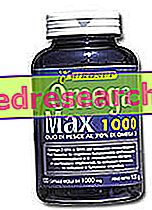
What is Carbaglu?
Carbaglu is a medicine that contains the active substance called carglumic acid. It is available as a dispersible tablet. "Dispersible" means that the tablets can be dispersed (mixed) in water.
What is Carbaglu used for?
Carbaglu is prescribed for the treatment of hyperammonaemia (high level of ammonia in the blood) in patients without an enzyme called N-acetylglutamate synthase (NAGS). This enzyme normally helps to metabolize ammonia. If the enzyme is not present, ammonia cannot be decomposed and accumulates in the blood. It is an extremely rare disease. Patients with severe total NAGS deficiency rapidly develop high concentrations of ammonia in the blood shortly after birth. Patients with partial NAGS deficiency (a milder form of the disease) may experience symptoms of the disease at any time of life, after a stressful event such as an infection or a viral illness.
Given the low number of patients with NAGS deficiency, Carbaglu was designated an orphan medicinal product (a medicine used to treat rare diseases) on 18 October 2000.
The medicine can only be obtained with a prescription.
How is Carbaglu used?
Treatment with Carbaglu should be started under the supervision of a doctor experienced in the treatment of metabolic disorders. Treatment can start as early as the first day of life. The initial daily dose should be 100 mg per kilogram of body weight, but can be used up to 250 mg / kg if necessary. The dose must then be adjusted to maintain normal levels of ammonia in the blood; daily doses are normally between 10 mg / kg and 100 mg / kg. The tablets must be dispersed (mixed) in a small dose of water before being administered to the patient. They can easily be broken into two equal halves. The medicine should be administered throughout the patient's life.
How does Carbaglu work?
People with NAGS deficiency are unable to decompose and eliminate ammonia. When this happens, ammonia builds up in the blood, which is toxic to the body and especially to the brain. Carbaglu has a structure very similar to N-acetylglutamate, which activates an enzyme capable of decomposing ammonia. Therefore Carbaglu promotes the decomposition of ammonia, reducing ammonia concentrations in the blood and its toxic effects.
How has Carbaglu been studied?
Carbaglu has been studied in 20 patients, of which 12 suffer from NAGS deficiency and treated for about three years on average. The other eight patients were treated for hyperammonemia due to other causes. The company also presented information from publications on four other patients treated with the active ingredient of Carbaglu.
What benefit has Carbaglu shown during the studies?
In most patients, treatment with Carbaglu resulted in a normalization of ammonia levels. Patients treated with Carbaglu remained stable without the need for dietary restrictions or other medications.
What is the risk associated with Carbaglu?
The most common side effect with Carbaglu (seen in between 1 and 10 patients in 100) is increased sweating. For the full list of all side effects reported with Carbaglu, see the Package Leaflet.
Carbaglu should not be used in people who are hypersensitive (allergic) to carglumic acid or to any of the excipients.
Why has Carbaglu been approved?
NAGS deficiency is a serious rare disease, with potentially devastating consequences and for which there are no other similar treatments. Based on the limited information on the efficacy and safety of the medicine provided, the Committee for Medicinal Products for Human Use (CHMP) concluded that Carbaglu is effective in normalizing ammonia levels in the blood. The Committee decided that Carbaglu's benefits are greater than its risks for treating hyperammonemia due to NAGS deficiency and therefore recommended that Carbaglu be given marketing authorization.
Carbaglu had originally been authorized in "exceptional circumstances" because, being intended for patients suffering from a rare disease, it was not possible to obtain complete information on the medicine. As the company provided the additional information requested, the restriction "in exceptional circumstances" fell on 26 June 2006.
More information on Carbaglu
On 24 January 2003, the European Commission granted Carphanlu a marketing authorization valid throughout the European Union to Orphan Europe. The marketing authorization was renewed on 24 January 2008.
For registration of the Carbaglu orphan medicinal product qualification, click here.
For the full EPAR for Carbaglu, click here.
Last update of this summary: 04-2008.



